20-Year-Old Gets Termed AH For Insisting That His Friend Has More Importance Than Their Pet Cat
Cats that roam freely and are feral have complicated, hectic lives. More than most people think, they maintain significantly larger territories.
These territories frequently include a variety of settings, including yards, farmlands, forests, and urban gardens. Cats forage, hunt, and explore these areas in search of food on their own.
They hardly ever socialize with other cats. They don't seek interaction with other cats, and they don't even live in pairs or groups.
In fact, they intentionally avoid it. It is understandable that it can be somewhat challenging to bring a new cat into an established cat's territory—even if that territory happens to be your home—given cats' innate habits.
So, you have to be patient when introducing a new cat to your household. The introduction needs to happen gradually, and a relationship might take a very long time to develop after the first meeting.
The OP lives with his mom and will most likely stay at her place until he finishes his bachelor's degree and has the money to afford his own place. They have two cats, and they both live in their own separate areas of the house.
This is because they weren't correctly introduced to each other. One mostly stays in his mom's bedroom, while the other essentially claims the rest of the house.
OP's homeless friend asked if he could stay at their place for the weekend, but his mom said they had to share his room. OP was angry about her reasons, as he believed his friend had more precedence over a cat.
The OP kicks off his story
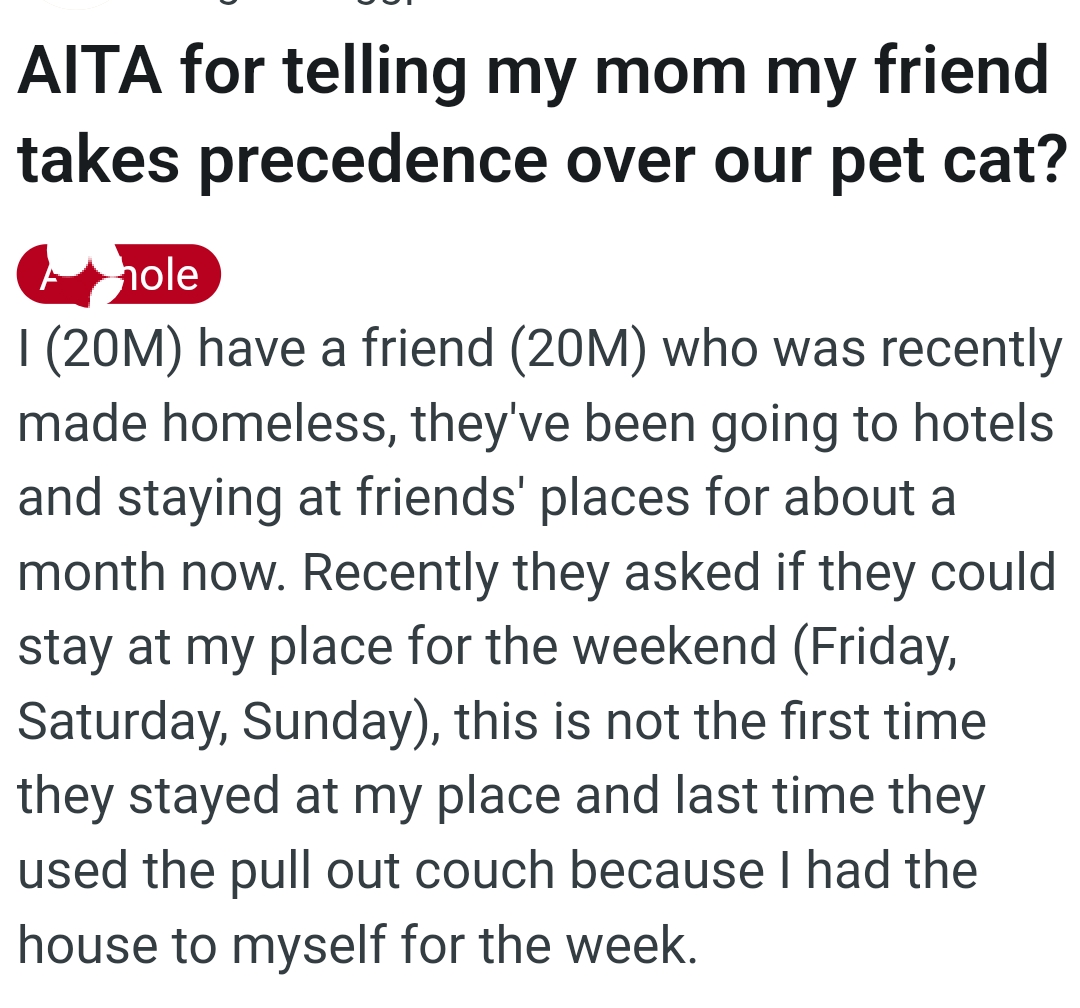
One stays in my mom's bedroom mostly while the other basically claimed the rest of the house
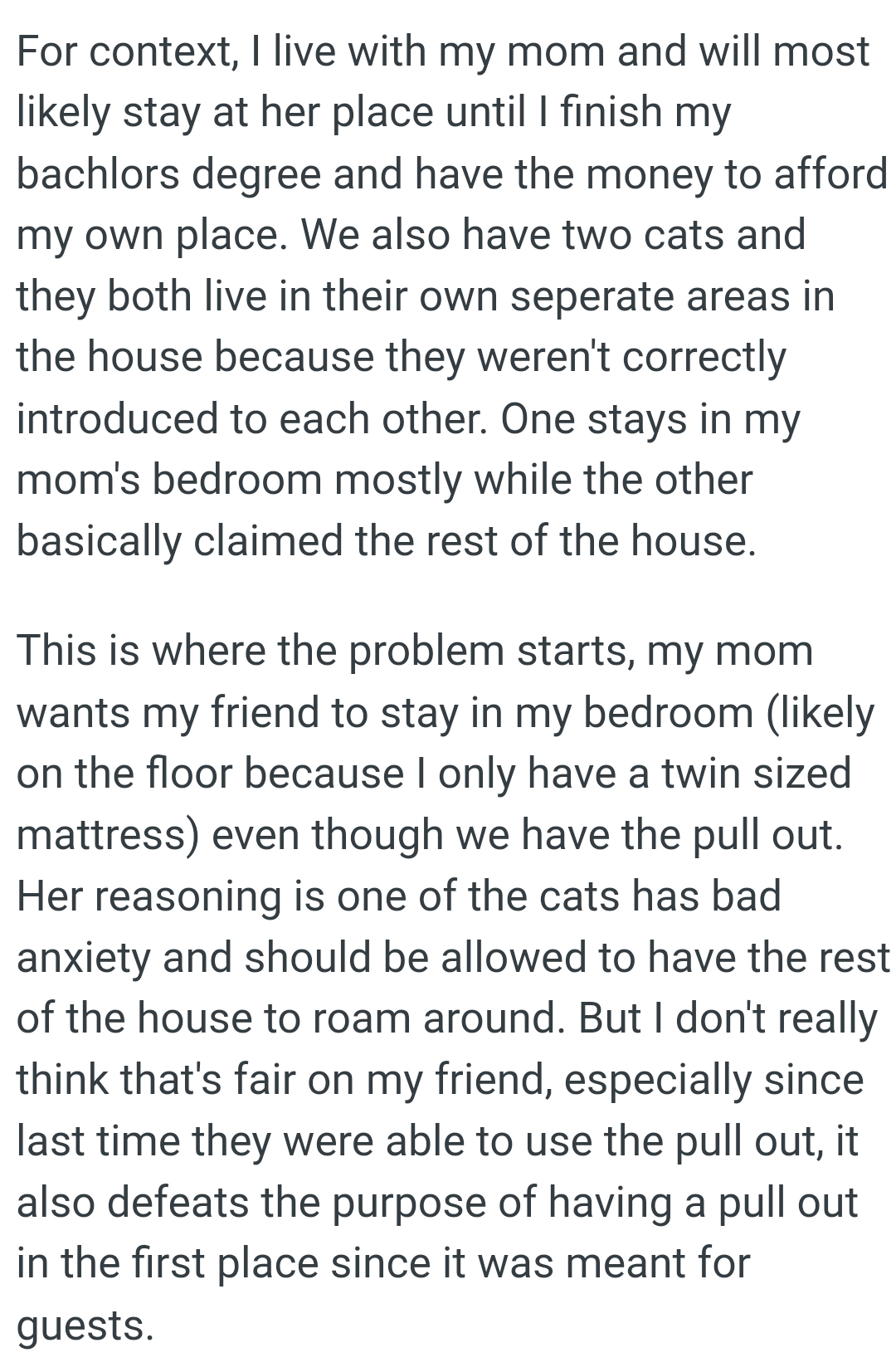
Understanding Prioritization in Relationships
Dr. Laura Jensen, a psychologist specializing in interpersonal dynamics, explains that prioritizing relationships over pets is often rooted in emotional attachment and social expectations.
This scenario illustrates the complexities of balancing personal priorities with those of loved ones.
Research indicates that emotional bonds often dictate our priorities, leading to potentially contradictory feelings in decision-making.
OP also thinks that he is disregarding her feelings
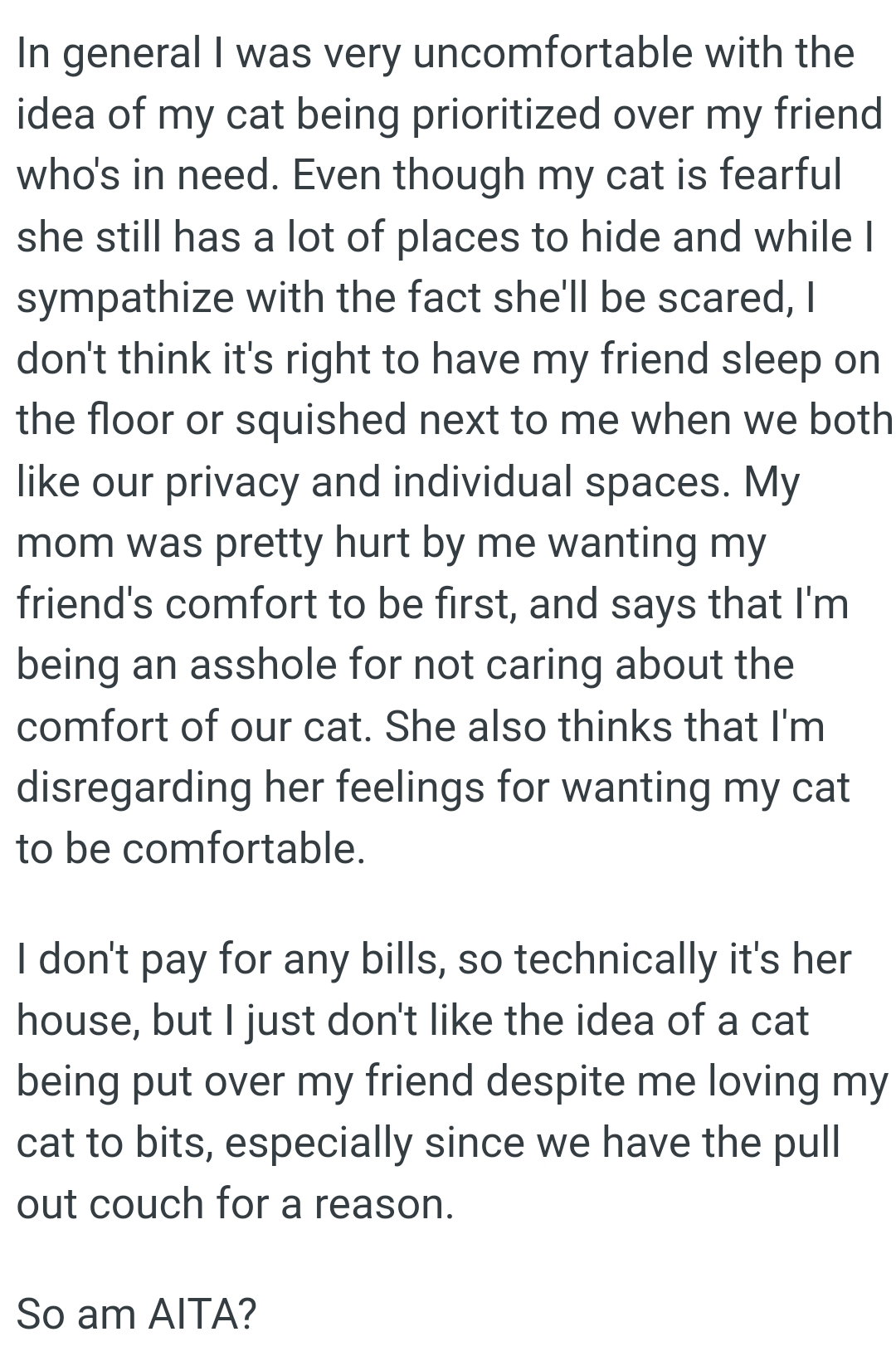
We've gathered some of the most upvoted comments from other Redditors for you to check out below
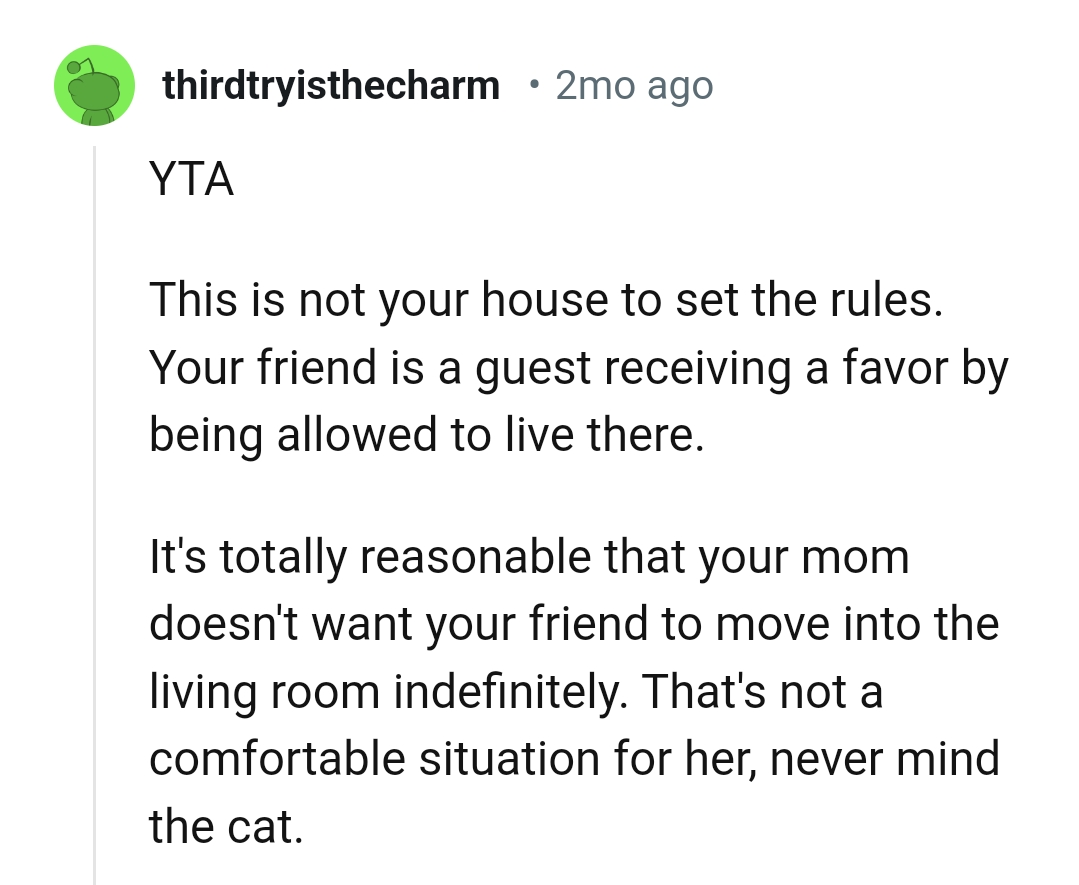
OP has offered the following explanation for why they think they might be the a-hole:
I told my mom that I didn't respect her feelings in wanting my friend to stay on the floor/in my bedroom because ultimately, my cat is just that—a cat—and that a person in need shouldn't be undermined when said cat has the whole rest of the house.
Her cats take precedence over the OP's friend
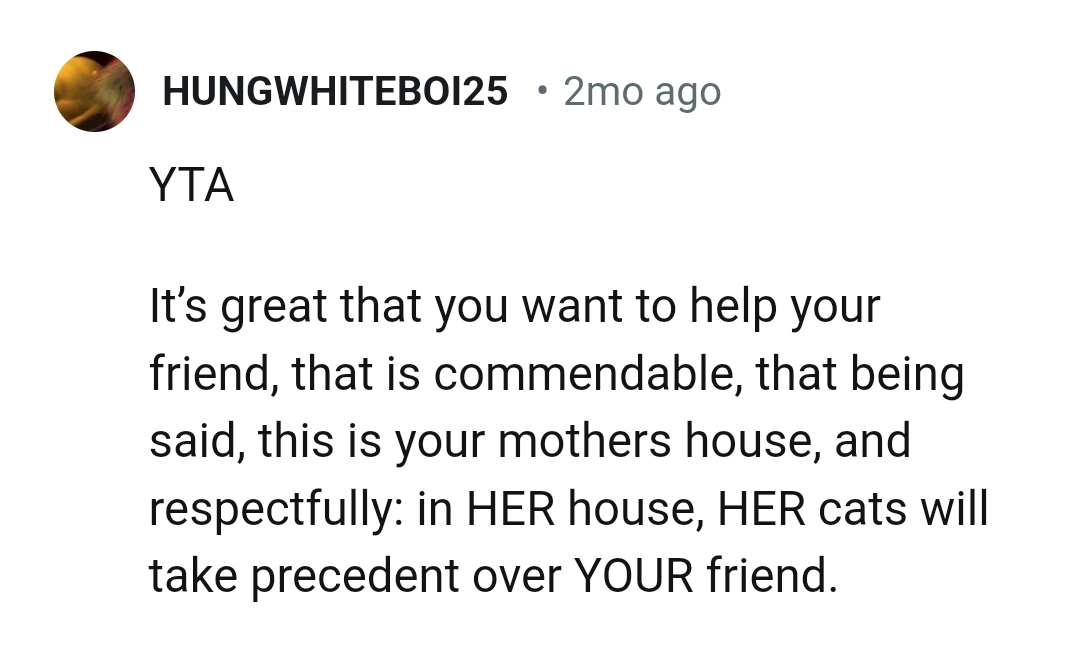
The OP can get his own place

According to Dr. Jonathan Haidt, a social psychologist, "conflicts often arise when our values regarding relationships and responsibilities are at odds." This situation, where one must choose between valuing a friendship and caring for a pet, exemplifies the complexities of managing competing priorities. As noted on his professional website, jonathanhaidt.com, understanding these dynamics can lead to more constructive conversations about what we prioritize in our lives.
The OP really needs to learn
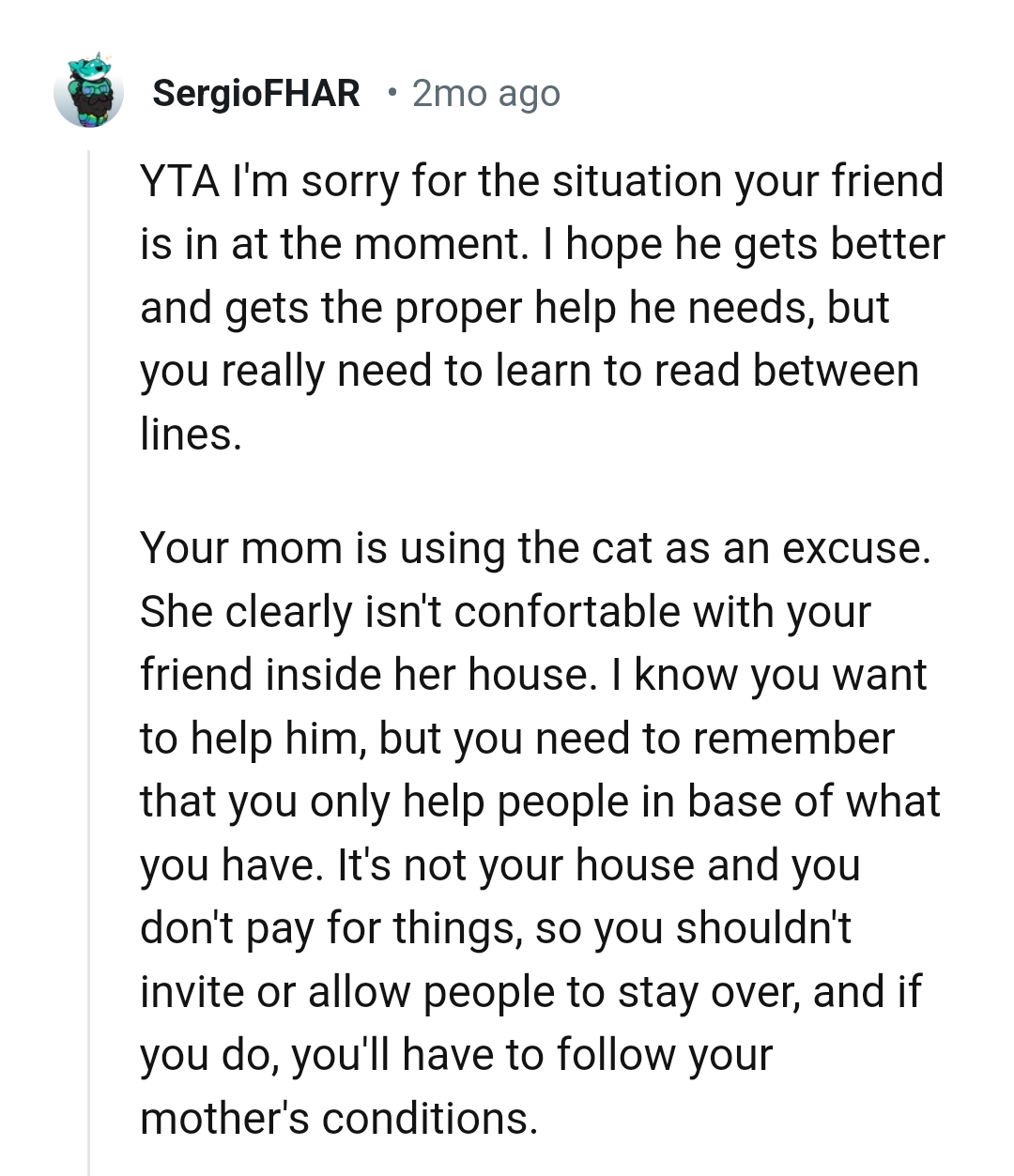
It's not just about the cat
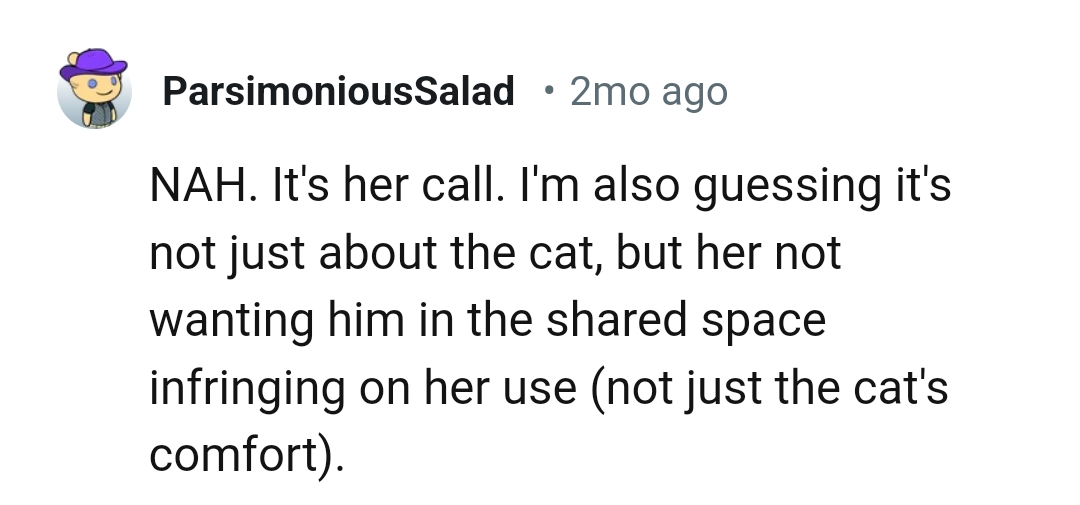
The Role of Emotional Attachment
Experts suggest that emotional attachment heavily influences our decision-making processes.
In friendships, loyalty and emotional connection can lead individuals to prioritize human relationships over non-human ones, even in difficult situations.
This can create feelings of guilt or conflict when faced with competing demands.
The OP can share his room if he wants
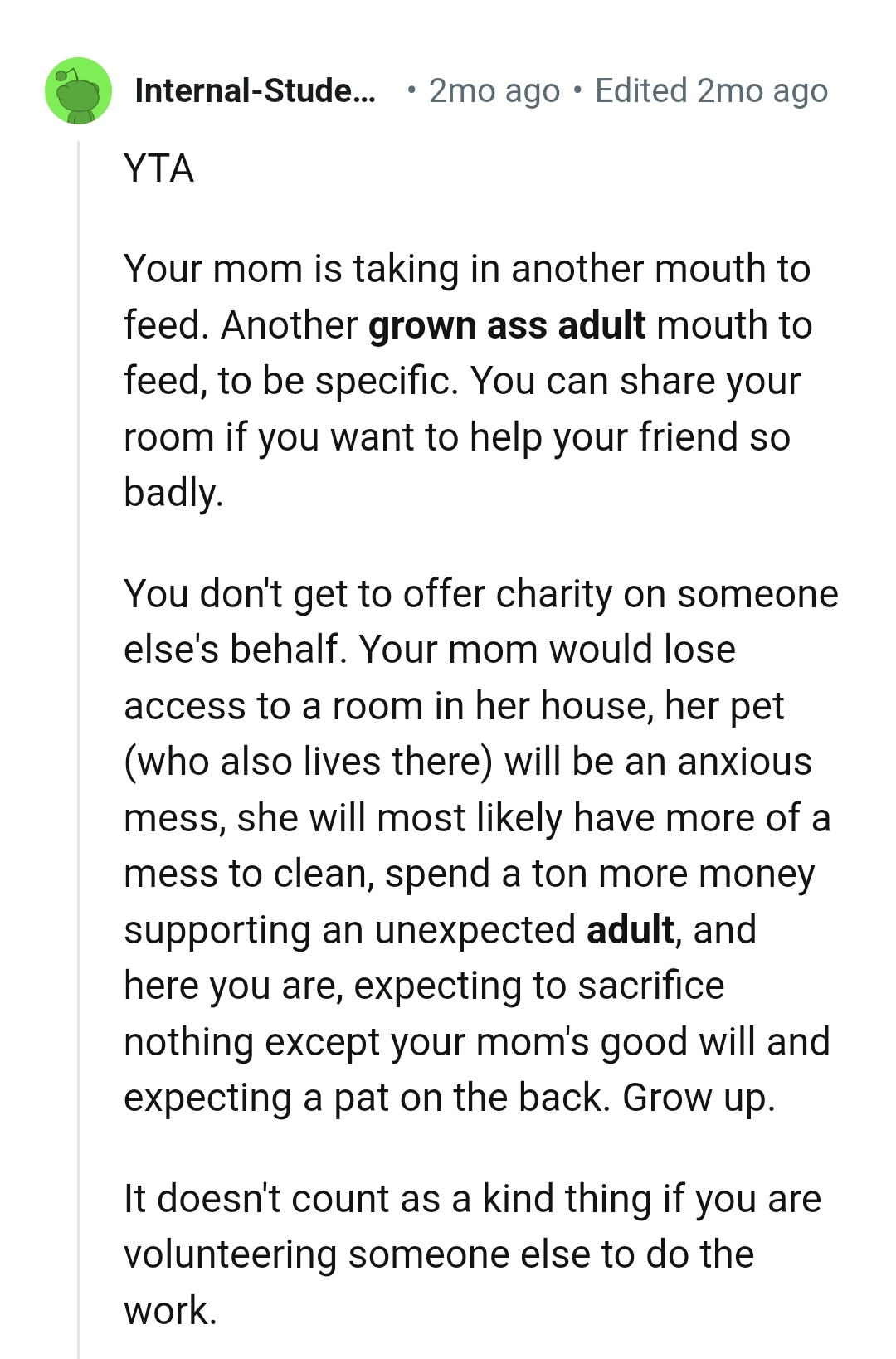
It is the cat's house first

Behavioral studies indicate that acknowledging the emotional aspects of decision-making can help individuals navigate conflicting priorities.
Practicing open communication about feelings can reduce misunderstandings and foster mutual respect in relationships.
This approach can lead to more satisfactory resolutions when faced with difficult choices.
It is the mom's house after all
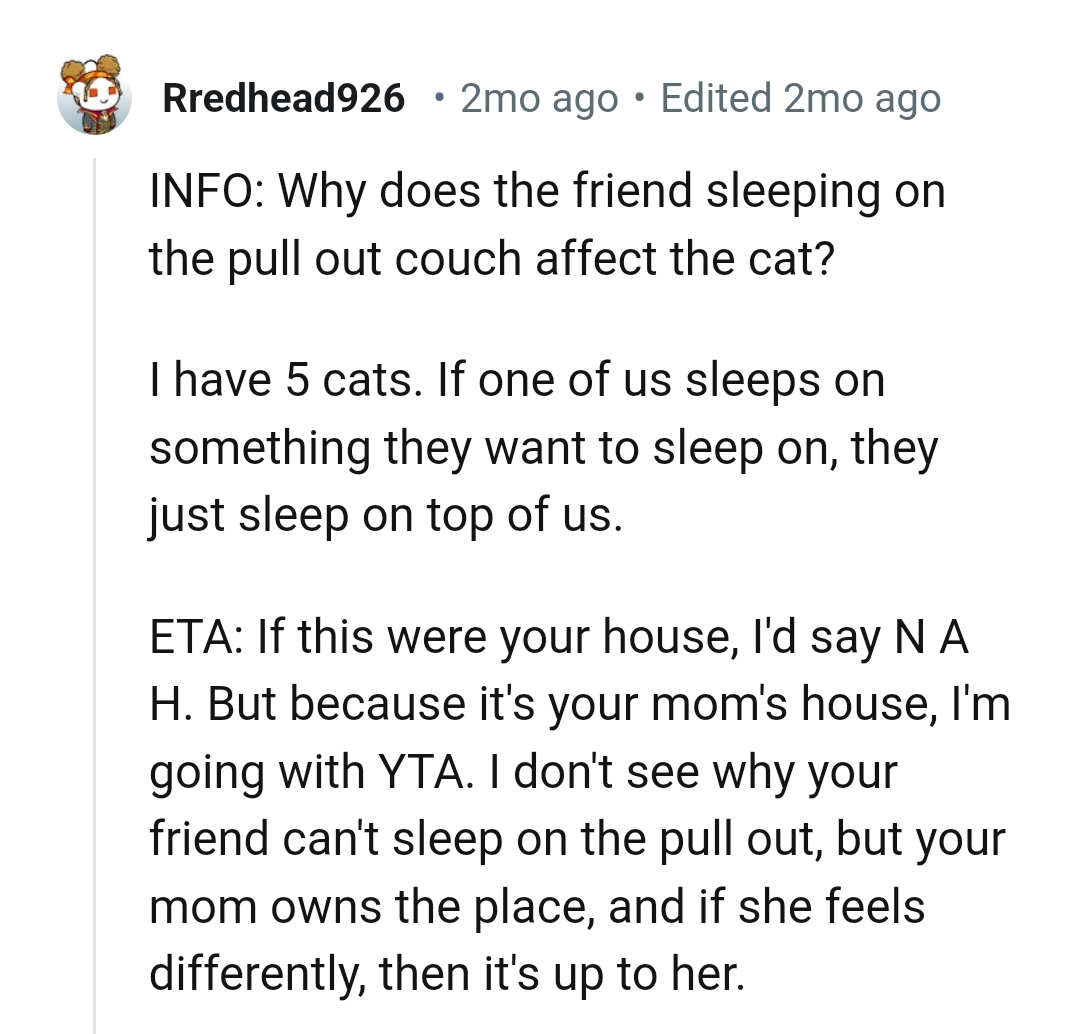
Finding a solution that fits everyone
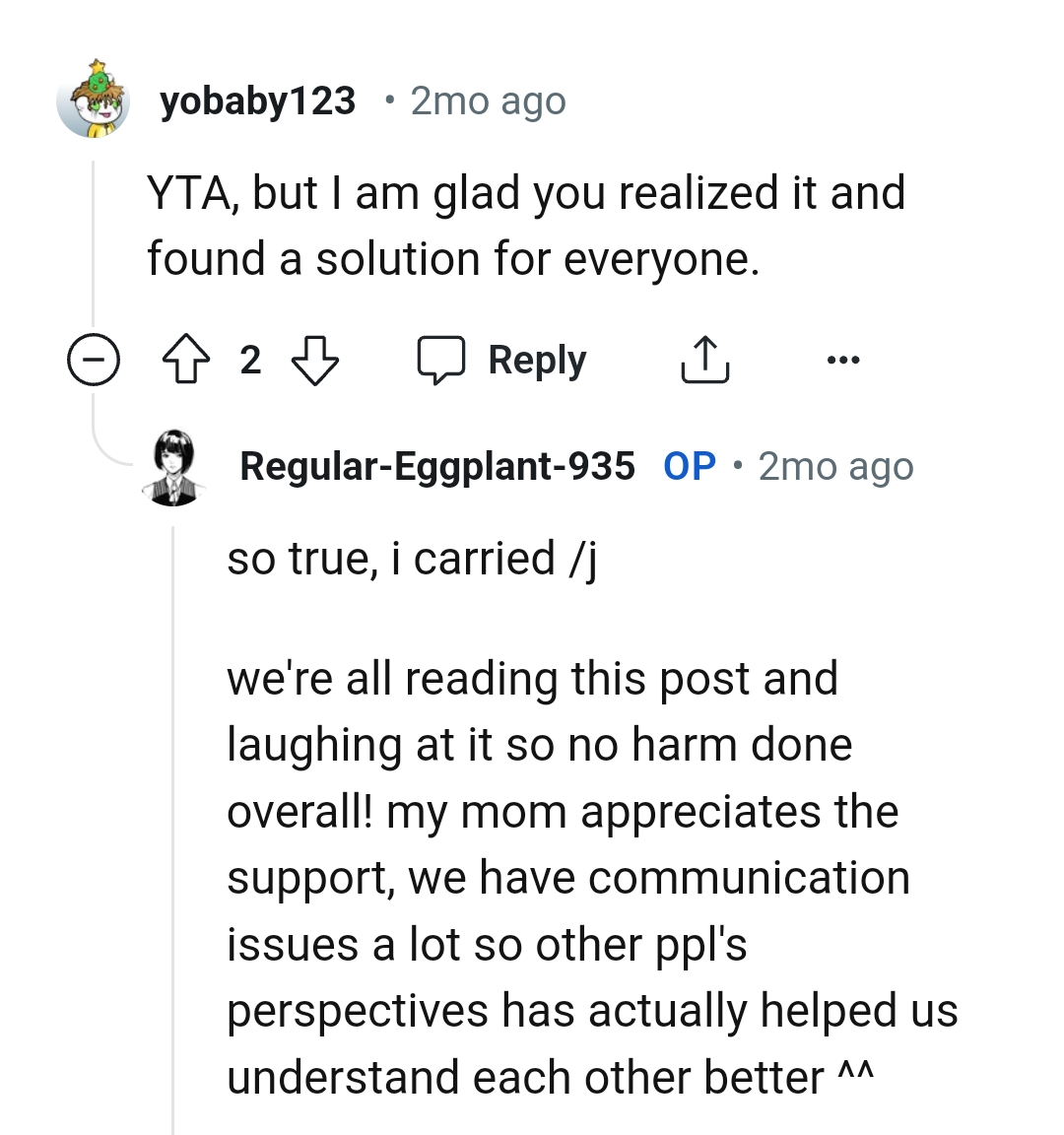
The house is not the OP's, and he made no mention of having to pay the rent. The OP wants his friend to be able to stay at his parents' house, but he really needs to prioritize her right to privacy.
The problem isn't that OP's friend is more important to him than his cat; rather, it's that he wants his mom to give up some of her comfort and space so that he can accommodate his friend. Eventually, the OP was declared the AH.
Psychological Analysis
This situation underscores the challenges of prioritizing relationships and responsibilities effectively.
Understanding the emotional factors at play can help individuals make decisions that respect both friendships and personal values.
Analysis generated by AI
Analysis & Alternative Approaches
Ultimately, navigating the complexities of prioritization in relationships requires careful consideration and open dialogue.
As noted in interpersonal psychology literature, 'Balancing emotional attachments and responsibilities is key to maintaining healthy relationships.'
Creating a Balance Between Responsibilities
Dr. Michael Carter, a family therapist, emphasizes the need for balance when making decisions that affect both relationships and responsibilities.
Creating a shared understanding of priorities among friends can help mitigate feelings of resentment.
Research shows that collaborative decision-making processes lead to healthier relationships and better outcomes.



